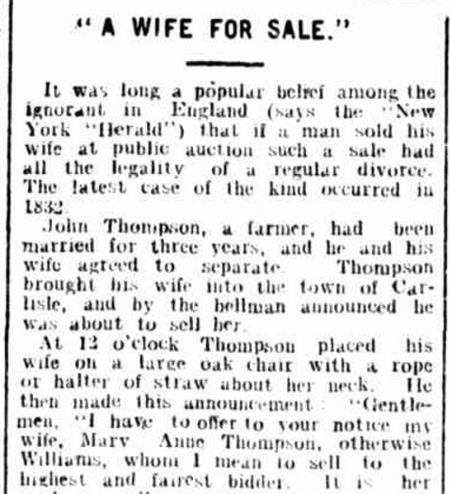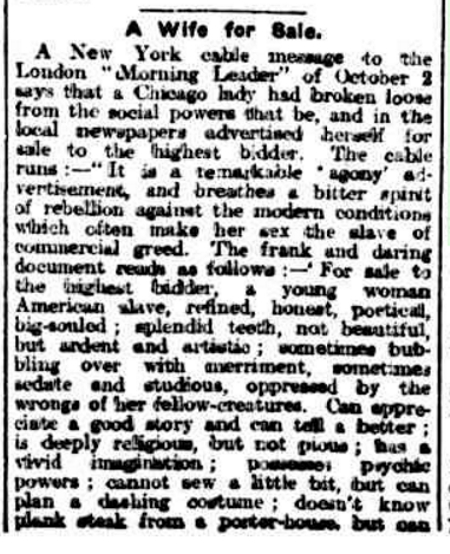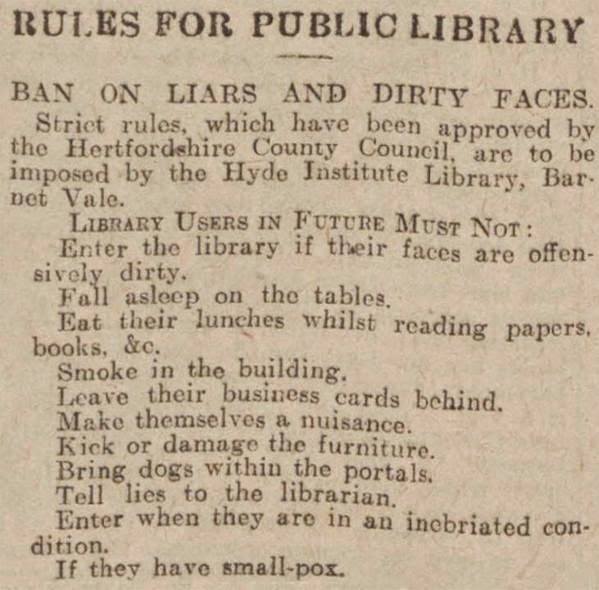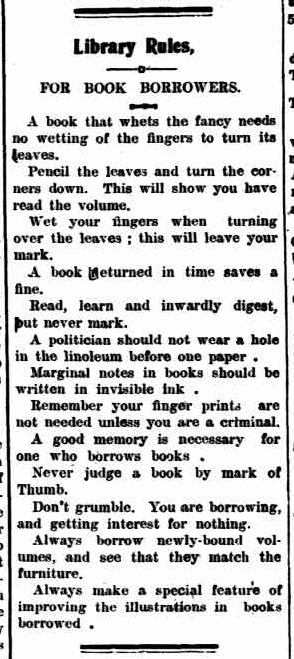Trove is Saved!
Researchers around Australia, and indeed around the world, are breathing a huge sigh of relief at the news that the Australian Federal Government is giving a much needed cash injection to Australia’s national treasure, the National Library of Australia and Trove.
In its upcoming May budget, the federal government has promised $33 million over four years to the NLA.
The NLA, which runs digital archive database Trove, will also be separately allocated funding of more than $9 million — a move the government said would secure the future of the service for years to come.
So this is fabulous news, not only does the National Library of Australia get much needed funding, much of which is needed to upgrade the NLA building itself – the building that holds so much of Australia’s history – Trove gets allocated funds too.
With newspapers, diaries, magazines, photos, gazettes, newsletters, maps, artefacts, books, diaries, letters, music, audio and video, and so much more, the Trove website is truly a portal of Australian history, to the world.

On Trove you can find more than 14 billion digital items primarily relating to Australian history, and now with ongoing funding, that number will continue to grow.
So a big, big thankyou for everyone who signed the various “Save Trove” petitions, and to those who wrote to their local Members of Parliament to voice concern over the potential closure of Trove. Our voices have been heard, and thanks to the ongoing funding, we can now continue to use our favourite website for all of our research.
https://trove.nla.gov.au/
For more about the announcement, have a read of these articles:
– National Library welcomes announcement of ongoing Trove funding
– Trove secures funding as federal government comes to rescue of National Library of Australia’s digitised archive
– Australia’s Trove Receives Lifeline with $42.2 Million Funding Boost
– Trove funding secured in 2023-24 Federal Budget
Please, Help Save Trove
For any Australian historian (family, local, or social historian) Trove is the ultimate GO-TO site. It is the National Library of Australia’s site, which is accessed by around 20 million people every year, and contains about six billion (that’s right BILLION) digital items, including newspapers, magazines, photographs, journals, parliamentary papers and more … and it’s all FREE!!
However due to huge funding cuts over a number of years, and the fact that Federal funding for the National Library of Australia’s digital resource ends in June 2023, means that Trove could cease operations, or at least in its current form.
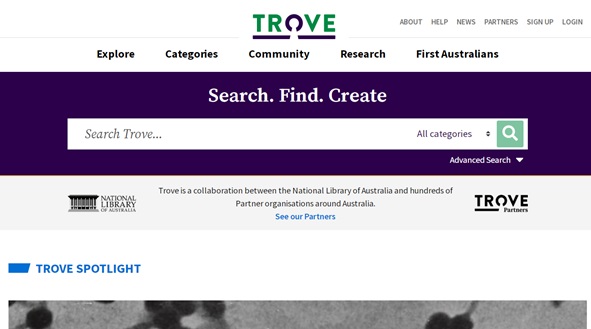
What if there was no Trove?
But to us researchers, a life without Trove is as unthinkable as life without Google.
This is Australia’s primary institution, the one that provides access to not only what the National Library of Australia itself holds, but access to holdings from 900 or so other Australian institutions. This is portal for Australia’s heritage, and yet depite it being used on a globa scale, is being treated as unimportant.
What can we do?
We have been asked to use our voice (well technically fingers), to sign a petition, and spread the word far and wide. But there is a time limit … the petition date is 22 February 2023. So we don’t have much time.
There was a Change.org petition for this topic, but it’s been said that the government only acts on “official” petitions. So another one was started by the same person, and this official petition will be presented to parliament. So if you care about access to Australia’s history, even if you don’t use Trove, please take a few moments to sign the petition.
And if you want to read more about what the organisations are saying, here are links to a number of articles about it:
- Online resource Trove is due to run out of government funding in six months, National Library of Australia warns
- Trove’s funding runs out in July 2023 – it’s time for a radical overhaul
- Trove in trouble: why does it cost money to keep the resource online?
- National Library’s digital archive Trove under threat
- Trove thrown overboard amid funding cuts
- National Library’s treasure Trove under threat from budget cuts
- National Library of Australia’s free digital archives may be forced to close without funding
- Trove’s funding is under threat. It’s time for an overhaul
- Speak up for Trove
[banner graphic used with permission from GenealogySA]
A Wife for Sale
Now there’s a title that I bet got your attention. I know it got mine when I was browsing through the old newspapers on Trove and saw the headline “A WIFE FOR SALE”.
On further searching, I found that there are actually quite a heap of articles titled “A Wife for Sale”. But today I’m going to share two with you.
In our modern day, western world society, the whole concept of “selling a wife” is horrifying, but these two articles might just give you a different view of it …
They both come from Queensland newspapers, but are reporting news from overseas.
ARTICLE 1 comes from the Brisbane Telegraph, Wednesday 31 July 1912, page 4 (click for a link to the original article) and is a mutally agreed sale between the husband and wife.
“A WIFE FOR SALE.”
It was long a popular belief among the ignorant in England (says the “New York “Herald”) that if a man sold his wife at public auction such a sale had all the legality of a regular divorce. The latest case of the kind occurred in 1832.
John Thompson, a farmer, had been married for three years, and he and his wife agreed to separate. Thompson brought his wife into the town of Carlisle, and by the bellman announced he was about to sell her. At 12 o’clock Thompson placed his wife on a large oak chair with a rope or halter of straw about her neck. He then made (his announcement “Gentlemen, “I have to offer to your notice my wife, Mary Anne Thompson, otherwise Williams, whom I mean to sell to the highest and fairest bidder. It is her wish as well as mine to part for ever. She has been to me only a born serpent I took her for my comfort, the good of my home, but she became my tormentor, a domestic curse, a night invasion, and a daily devil. I speak truth from my heart when I say— May God deliver us from troublesome wives and frolicksome women! Avoid them as you would a mad dog, a roaring lion, a loaded pistol, cholera morbus, Mount Etna, or any other pestilential thing in nature.
WOMANLY QUALITIES. Now I have shown you the dark side of my wife, and told of her faults and failings, I will introduce the bright and sunny side of her, and explain her qualifications and goodness. She can read novels and milk cows, she can laugh and weep with the same ease that you could take a glass of ale when thirsty. Indeed, gentlemen, she reminds me of what the poet says of women in general — Heaven gave to women the peculiar grace, To laugh, to weep, to cheat the human — race. “She can make butter and scold the maid; she can sing Moor’s melodies and plait her folds and caps; she cannot make rum, gin, or whisky, but she is a good judge of the quality of each from long experience in tasting them. I therefore offer her, with all her perfections and imperfections, for the sum of fifty shillings.”
The woman was finally sold to one Henry Mears for the sum of twenty shillings and a Newfoundland dog. Man and wife parted in perfect good temper, Mears and the woman going one way, Thompson and the dog another.
So all ended happy, in an odd way. And that would certainly make for an interesting tid-bit on someone’s family tree.
————————
ARTICLE 2 was recorded in the Brisbane Courier, Tuesday 20 November 1906, page 4 (click for a link to the original article). This is an interesting one with a lady offering herself up for sale.
A Wife for Sale.
A New York cable message to the London “Morning Leader” of October 2 says that a Chicago lady had broken loose from the social powers that be, and in the local newspapers advertised herself for sale to the highest bidder. The cable runs:- “It is a remarkable “agony” advertisement, and breathes a bitter spirit of rebellion against the modern conditions which often make her sex the slave of commercial greed. The frank and daring document reads as follows:- ‘For sale to the highest bidder, a young woman American slave, refined, honest, poetical, big-souled; splendid teeth, not beautiful, but ardent and artistic; sometime bubbling over witih merriment, sometimes sedate and studious, oppressed by the wrongs of her fellow-creatures. Can appreciate a good story and can tell a better; is deeply religious, but not pious; has a vivid imagination; possesses psychic powers; cannot sew a little bit, but can plan a dashing costume; doesn’t know plank steak from a porter-house, but can
get up a swell dinner; can’t make a loaf of bread, but can give character impersona-tions that can’t be beat; doesn’t go to church, but obeys every divine law. She’s a lovely typewriter, but typewriting is hell; has Axminster tastes, but ragcarpet opportunities. With versatile talents she longs for silk cîatihing, and buys cotton, while shallow-pated women laden with diamonds air themselves and lap-dogs in 5000 dollar automobiles; her brain is burn-ing with projects to benefit mankind, but her body is bound with galling iron chains, to the rack of mechanical toil. Instead of offering herself for sale privately she prefers a public auction; is not very old, but wasn’t born yesterday.’ Arrayed in a baby blue tea gown and diamond brooch, she received the Chicago journalists. ‘I’m offering my intellect and genius,’ she explained. ‘I don’t suppose I shall be respected by the conventional world, but I am through with drudgery and toil. The man who buys me will get a poor cook, but a good entertainer.'”
I would love to know what happened to her. Did she find a good husband and a happy home? Either way you have to admire her guts for wanting to change her life, and get out of slavery, not to mention her honesty in the description!
Just out of interest I did find numerous articles for “Husband for Sale” too, but I’ll save that for another time.
No Liars, No Dirty Faces, and Other Library Rules
Library rules were simple back in the day. If you take look at current library rules, they’re kind of what you’d expect. Very long and very detailed. Not that there’s anything wrong with that, they’re just covering their bases.
But back the 1900s (actual date unknown), the Hyde Institute Library in Hertfordshire, England, created a list of just 12 simple rule … and very wise ones at that!
What we do know, is that the first newspaper account of this list that I found was is in The Observer, London, England, Sunday 27 April 1930, p18.
But it was so good, that it was picked up by the Australian newspapers, and reproduced in the Northern Territory Times, 12 August 1930, p6, as well as Brisbane’s Sunday Mail, 11 January 1931, p15 as well as Melbourne’s Advocate, Tuesday 23 March 1939, p16 to mention a few.
Incidentally while looking on Trove for “Library Rules”, I found a great article that was printed in the Geraldton Guardian, Tuesday, 4 November 1914, p4, which I’ve added in below.
I especially like the “Don’t grumble. You are borrowing, and getting interest for nothing”. So true. Libraries are free, and they provide an incredible service to the community. Respect the staff and library volunteers, not to mention the books and other items the library has and allows the public to use.

